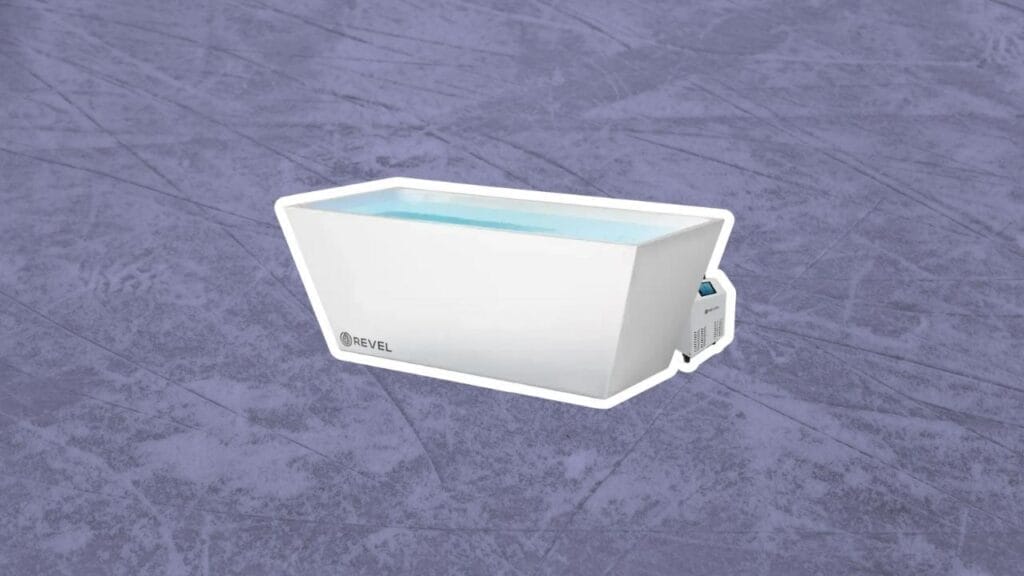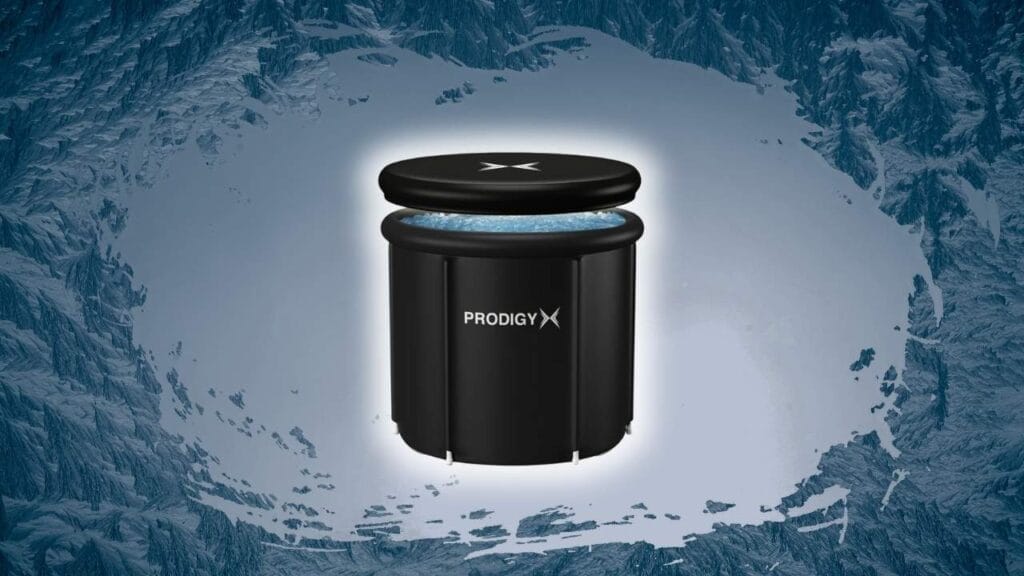Non-Sleep Deep Rest vs. Normal Sleep: Which is Better For You?
We include links to products we think are useful for our readers. If you click and buy a product through one of the affiliate links on this page, we may earn a small commission.

Key Takeaways
NSDR and sleep both offer unique paths to relaxation and well-being.
NSDR provides quick, accessible relaxation without needing sleep.
Traditional sleep is unmatched in physical and mental health benefits.
Combining NSDR with regular sleep can enhance overall restfulness.
Recognizing the value of both NSDR and sleep is key to a balanced wellness routine.
Sleep: it’s something we all do, yet its full importance often escapes us. In our quest for health and well-being, we’ve come across two key players: normal sleep and something called Non-Sleep Deep Rest (NSDR). While the former is familiar to everyone, the latter might sound new.
So, what’s the deal with NSDR, and how does it stack up against the traditional Zs we catch every night?
Let’s get on to both, comparing them to see how each contributes to our overall health.
Further Understanding Your Good Night’s Sleep
Sleep is far from just shutting down for the night. It’s a sophisticated cycle your body and mind go through, broken down into two main parts: REM (Rapid Eye Movement) sleep and NREM (Non-Rapid Eye Movement) sleep, each with its unique role.
The Phases of Normal Sleep:
NREM Sleep: Most of your sleep time is spent here, starting lightly and deepening. In deep NREM sleep, your body is in repair mode, building muscle and strengthening your immune system.
REM Sleep: About 90 minutes after falling asleep, you enter REM sleep, where dreams occur. It’s vital for processing emotions, learning, and memory consolidation. Your brain is nearly as active as when you’re awake, sorting through and storing information.
The Importance of Good Sleep:
Brain Function: Quality sleep sharpens your focus, improves problem-solving abilities, and enhances overall brain function.
Physical Health: Sleep is crucial for body repair, heart health, and regulating hormones that affect hunger and blood sugar levels.
Emotional Well-being: Adequate sleep supports emotional stability, and decision-making, and can help prevent depression and anxiety.
This is why regular, restful sleep is foundational to health, on par with diet and exercise.
A Short Explanation of Non-Sleep Deep Rest (NSDR)

Non-Sleep Deep Rest, or NSDR, may sound a bit like science fiction, but it’s a real and practical way to relax deeply without actually sleeping. Unlike regular sleep that cycles through deep and REM stages, NSDR uses mindful practices to help you relax while staying awake. Let’s take a closer look:
What NSDR Includes:
Meditation: This isn’t just sitting quietly; it’s about actively calming the mind. I’ve found meditation helps me quiet down and feel peaceful, in a way that’s different from sleep.
Yoga Nidra: This type of meditation guides you to a relaxed state, very close to sleep, but your mind stays awake. I like using Yoga Nidra to relax deeply without dozing off.
Autogenic Training: This method uses self-suggestion to relax and feel good. When I need to reduce stress, this is what I turn to.
Guided Visualization: Imagining peaceful places can make you feel relaxed, similar to when you’re sleeping, but you’re awake. This helps me unwind, especially when my thoughts are too busy for sleep.
How NSDR Works
Studies show (including Huberman’s) that Non-Sleep Deep Rest can cut down on stress and make you feel mentally better. These practices change how your brain works, making you more relaxed and less stressed. Since I started NSDR, my sleep and mood have gotten better.
Getting into NSDR can not just make you sleep better but also improve your mood and how you think, making it a great tool for overall health.
It’s especially a great avenue for people who have trouble sleeping or want to improve their mental and physical health. It shows just how powerful connecting the mind and body can be for our health. For further effectiveness, you can use Apollo Neuro to artificially stimulate relaxation through vibrations.
NSDR vs. Normal Sleep: A Simple Comparison
I’ve been exploring how Non-Sleep Deep Rest (NSDR) and regular sleep compare. Both are important for helping us relax and recharge, but they work differently.
Here’s what I’ve learned from looking into both.
Relaxation Benefits
NSDR practices, like meditation and Yoga Nidra, and getting a full night’s sleep both do a great job at lowering stress and helping us relax. After trying NSDR or getting plenty of sleep, I always feel more relaxed and ready to handle my day. If you want to supercharge yourself after doing both, try getting Premium Grounding’s grounding bed overlay and have it placed on your bed before you unwind.
How They Work
It takes a while to reach deep sleep because you go through lighter sleep first. NSDR can get you relaxed more quickly. When sleep is hard to come by, or I don’t have time for a nap, I find NSDR really helpful for a quick relaxation fix. NSDR includes things like special breathing techniques, light meditation, and even listening to certain types of calming sounds.
These practices help your brain reach a deeply relaxed state, similar to when you’re in a very deep sleep, but you’re actually awake. This is super handy for times when you are having sleep deprivation or need a quick way to chill out.
Combining NSDR with Sleep
Using NSDR to improve sleep quality has been a great discovery for me. Adding a bit of NSDR, like Yoga Nidra, before bed helps me fall asleep faster and enjoy deeper sleep.
Though, nothing can fully replace the benefits you get from a good night’s sleep. While asleep, your body fixes itself up, your brain sorts through what you’ve learned, and you wake up feeling refreshed. Sleep goes through cycles, including deep sleep and dream-filled stages, which help your mind and body in ways NSDR can’t.
Yet, NSDR has its superpowers. It’s great for those moments when you’re feeling stressed or your mind is too busy to let you sleep. By helping your mind relax, you can sometimes find it easier to fall asleep later on. Plus, NSDR can be a quick fix to feel rested when you’re short on time.
It also works wonders when you pair it with an infrared blanket sauna.
Even though NSDR is awesome for a quick relaxation boost, getting in those 7-9 hours of sleep every night is key. It’s the best way to make sure you’re taking care of your body and mind, keeping you healthy, sharp, and ready for whatever comes your way.
In the end, mixing a bit of NSDR into your daily routine along with keeping a solid sleep schedule is a great strategy. It’s like having the best of both worlds, ensuring you’re relaxed, rested, and recharged for life’s adventures.
Is NSDR Excellent for Quick Recovery?

It might just be what athletes and gym rats need for a quick bounce back during their workouts. Use short breaks not just for physical rest but for deep mental relaxation too. Techniques like quick meditation or focused breathing could be exactly what your body and mind need to recharge more effectively than just taking a breather.
Additionally, wearing a fitness tracker ring or a strap device like Whoop can show interesting results. It might reveal that your heart calms down quicker with NSDR compared to just sitting out. This hints at a deeper level of rest and recovery.
Paying attention to how your body reacts to NSDR while you exercise is key. It’s about finding the perfect mix where a little bit of calm can boost your workout routine. But remember, as helpful as NSDR is for quick recovery, it can’t take the place of a good night’s sleep. I think you should get every chance of sleep that you can get during the night to make sure you’re ready to go, both physically and mentally.
I admit, though, NSDR offers an unconventional (yet effective) way to quickly relax and recover during your exercise routine, but always make sure to get plenty of sleep every night. This balance can help you get the most out of your workouts and keep you feeling great.
Frequently Asked Questions
NSDR involves conscious relaxation practices, while normal sleep includes cycles of REM and deep sleep for physical and mental restoration.
No, NSDR can’t replace sleep. Sleep is essential for physical health and recovery, while NSDR is more about mental relaxation.
Even with good sleep, NSDR can offer additional stress relief and help improve focus and well-being during your waking hours.
Most people can benefit from NSDR, but it’s always a good idea to start slowly and see how it fits into your personal wellness routine.
An effective NSDR session can vary in length, but many find sessions lasting 10 to 30 minutes can significantly enhance relaxation and mental clarity.
Yes, NSDR practices like Yoga Nidra can help calm the mind, making it easier to fall asleep and potentially improving the quality of sleep for those with insomnia.
Final Thoughts
Looking at everything, we’ve seen that both chilling out with NSDR and getting plenty of sleep at night are super important. NSDR is a cool way to relax quickly, especially when you’re stressed or can’t sleep. But, nothing beats the full-body recharge you get from sleeping all night. Mixing a little NSDR into your day and making sure you get those solid hours of sleep is like giving your body and mind a super boost.
Isn’t it great how a little rest can go such a long way?
References
Gilley, R. R. (2023). The role of sleep in cognitive function: the value of a good night’s rest. Clinical EEG and Neuroscience, 54(1), 12-20.
Houldin, E., Fang, Z., Ray, L. B., Stojanoski, B., Owen, A. M., & Fogel, S. M. (2021). Reversed and increased functional connectivity in non-REM sleep suggests an altered rather than reduced state of consciousness relative to wake. Scientific Reports, 11(1), 11943.
Mason, G. M., Lokhandwala, S., Riggins, T., & Spencer, R. M. (2021). Sleep and human cognitive development. Sleep medicine reviews, 57, 101472.
Sumantry, D., & Stewart, K. E. (2021). Meditation, mindfulness, and attention: A meta-analysis. Mindfulness, 12, 1332-1349.





